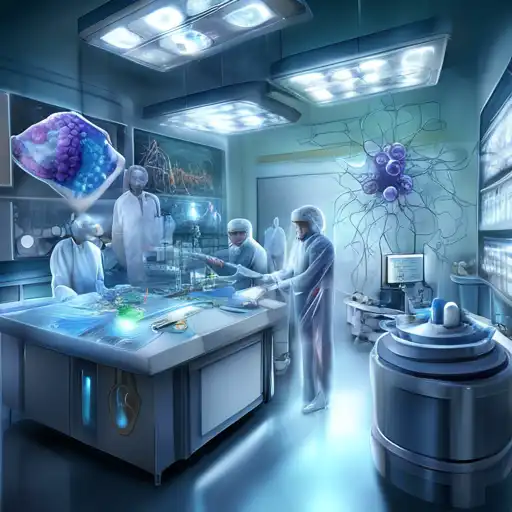Revolutionizing Healthcare: The Impact of Nanotechnology in Medicine
Nanotechnology, the science of manipulating matter at the atomic and molecular scale, is set to revolutionize the field of medicine. With its potential to diagnose, treat, and prevent diseases at a cellular level, nanotechnology in medicine is indeed the next big thing. This article explores the groundbreaking advancements and the future prospects of nanotechnology in healthcare.
Understanding Nanotechnology in Medicine
Nanotechnology involves the use of nanoparticles, which are particles between 1 and 100 nanometers in size. These tiny particles can interact with biological systems in ways that were previously unimaginable, offering new possibilities for drug delivery, diagnostics, and tissue engineering.
Current Applications of Nanotechnology in Medicine
Today, nanotechnology is being used in various medical fields, including oncology, cardiology, and neurology. Some of the most notable applications include:
- Targeted Drug Delivery: Nanoparticles can deliver drugs directly to diseased cells, minimizing side effects and improving treatment efficacy.
- Diagnostic Imaging: Nanotechnology enhances the resolution of imaging techniques, allowing for earlier and more accurate diagnosis of diseases.
- Regenerative Medicine: Nanomaterials are being used to create scaffolds that support the growth of new tissues and organs.
The Future of Nanotechnology in Medicine
The potential of nanotechnology in medicine is vast. Researchers are exploring its use in developing personalized medicine, where treatments are tailored to the individual's genetic makeup. Additionally, nanotechnology could lead to the development of nanorobots that can perform surgeries at a cellular level.
Challenges and Ethical Considerations
Despite its promise, the application of nanotechnology in medicine faces several challenges, including safety concerns, regulatory hurdles, and ethical issues. It is crucial to address these challenges to fully realize the potential of nanotechnology in healthcare.
For more insights into the future of healthcare, explore our articles on MedicalInnovation and HealthTech.
Conclusion
Nanotechnology in medicine represents a frontier of medical science that promises to transform healthcare. With ongoing research and development, the day is not far when nanotechnology will become an integral part of medical treatments, offering hope for curing diseases that are currently considered incurable.
